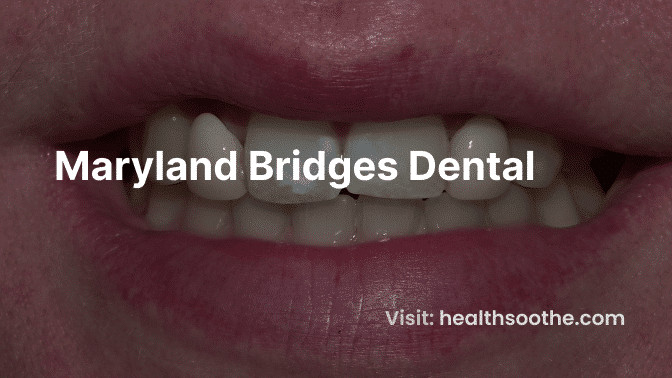Savoring the pleasure of tasting and digesting a diverse array of foods is an essential element of your everyday existence. Yet, the disruption caused by tooth loss can substantially hinder this vital function, often complicating the pursuit of a well-rounded and healthful dietary regimen. Enter dental bridges, a widely embraced therapeutic remedy in the realm of dentistry, poised to restore and amplify one's chewing prowess. In this article, you will explore and better understand the many advantages of dental bridges. This journey unravels how these dental marvels are not merely about restoring lost teeth but restoring the essence of gastronomic delight and overall well-being.
Understanding Dental Bridges
Dental bridges and innovative dental appliances, serve as effective solutions for filling the void created by missing teeth. This sophisticated dental restoration comprises two integral elements: pontics, the artificial teeth that replace the gaps and dental crowns, which securely anchor onto either neighboring healthy teeth or dental implants. The versatile construction of bridges allows for customization, with materials such as porcelain, ceramic and resilient metal alloys, meticulously chosen to ensure both a lifelike aesthetic and enduring structural integrity. These tailored prosthetic marvels offer both functionality and a seamless blend with the natural dental landscape.
Enhancing Chewing Ability
Here are some of the many benefits you can experience with dental bridges.
1. Restoring Tooth Function
The primary goal of dental bridges is to restore the functionality of the missing teeth. When teeth are lost, the surrounding teeth may shift and alter your bite, which can affect your ability to chew properly. Dental bridges not only fill the gap but also help maintain the proper alignment of teeth. This restoration of tooth function ensures that the force applied during chewing is distributed evenly across the dental arch, improving the efficiency of the mastication process.
2. Regaining Proper Occlusion
Proper occlusion, or the way your upper and lower teeth fit together when you bite down, is crucial for efficient chewing. Tooth loss can disrupt this balance, leading to difficulties in chewing and uneven stress on the remaining teeth. Dental bridges help restore proper occlusion by replacing missing teeth and reestablishing a harmonious bite. This, in turn, aids in efficient mastication and reduces the risk of further dental problems.
3. Enhanced Masticatory Efficiency
Chewing involves the breaking down of food into smaller, digestible particles. Teeth play a pivotal role in this process and when teeth are missing, it becomes more challenging to chew food thoroughly. Dental bridges provide a stable platform for the teeth involved in the chewing process. This stability allows for better control and more effective grinding and tearing of food, ultimately improving masticatory efficiency. Consequently, it becomes easier to digest food and absorb essential nutrients, promoting overall health.
4. Increased Dietary Options
Tooth loss often leads to dietary restrictions, as individuals may avoid certain foods that are difficult to chew. With dental bridges, patients can regain confidence in their ability to chew various types of food. This expanded dietary range allows for a more balanced and nutritious diet, positively impacting overall health and well-being.
Benefits Beyond Chewing Ability
While enhancing chewing ability is a primary goal of dental bridges, their benefits extend beyond this aspect.
Improved Aesthetics
Dental bridges not only restore function but also enhance the aesthetic appearance of the smile. The prosthetic teeth are carefully designed to match the color, shape and alignment of the existing natural teeth, creating a seamless and attractive smile. This aesthetic improvement can boost self-esteem and overall quality of life.
Speech Improvement
Missing teeth can affect speech patterns, leading to difficulties in pronunciation and articulation. Dental bridges can help address these speech impediments, allowing individuals to communicate more clearly and confidently.
Preventing Further Tooth Loss
When a tooth is lost, the surrounding teeth can become more susceptible to damage or shifting. Dental bridges help prevent further tooth loss by stabilizing the dental arch and preserving the integrity of adjacent teeth.
Long-Term Durability
Dental bridges are known for their durability, offering a long-lasting solution to tooth loss. With proper care and maintenance, they can provide reliable chewing ability for many years, making them a cost-effective investment.
Considerations and Care
While dental bridges offer numerous benefits, it is essential to consider the following aspects:
- Proper Oral Hygiene: Maintaining good oral hygiene is crucial to the longevity of dental bridges. Regular brushing, flossing and dental check-ups are essential to prevent issues such as gum disease or decay around the bridge.
- Dietary Choices: Even with dental bridges, it is advisable to be cautious with extremely hard or sticky foods, as they can place excessive stress on the prosthetic teeth.
- Regular Check-ups: Dental bridges should be periodically checked by a dentist to ensure their stability and functionality. Adjustments may be necessary over time.
Conclusion
Dental bridges play a vital role in improving the chewing ability of individuals with missing teeth. By restoring tooth function, proper occlusion and masticatory efficiency, they enable a more varied and nutritious diet while preventing further oral health issues. Additionally, dental bridges offer aesthetic benefits, speech improvement and long-term durability. If you are experiencing tooth loss, consulting with a dentist about the potential benefits of dental bridges is a prudent step toward enhancing your overall oral health and quality of life.


